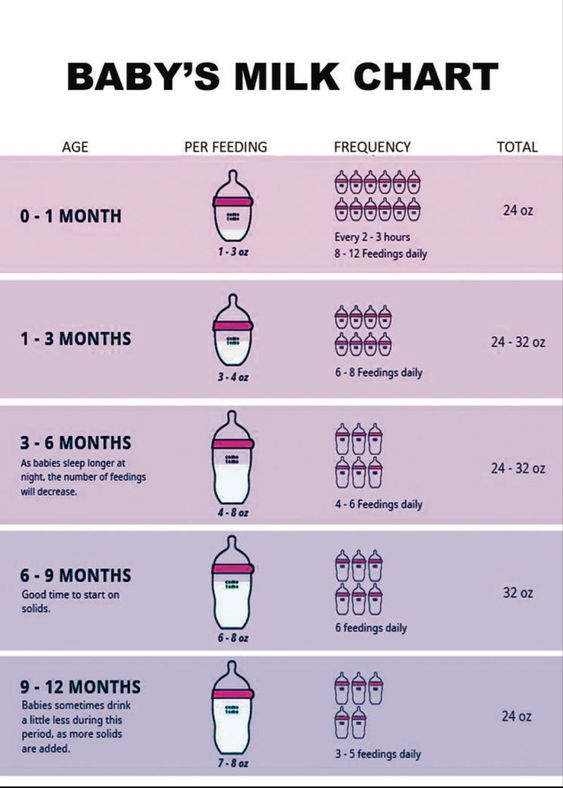Understanding how often to feed newborn is crucial for new parents. Proper feeding ensures your baby’s growth and development while also fostering a strong parent-child bond. This guide covers breastfeeding, formula feeding, and important signs to watch for, ensuring your newborn receives the nutrition they need. We will delve into dream feeding, signs of poor feeding in a newborn, how often to feed a newborn at night, and a breastfeeding frequency by age chart to provide you with comprehensive information.

What is a dream feed?
Dream feeding is when you gently wake your baby to feed them before you go to sleep. The idea is to fill their tummy so they sleep longer through the night. It’s done by lightly rousing the baby, feeding them, and then putting them back to bed without too much stimulation.

Understanding 2 Main Newborn Feeding Needs:
New parenthood is a whirlwind of joy and questions, and one of the most common concerns for new parents is how often their newborn should feed. While there’s no one-size-fits-all answer, understanding the basics of newborn feeding can provide valuable guidance.
Newborns typically need to be fed every 2-3 hours, which equals about 8-12 feedings in 24 hours. This frequent feeding helps them gain weight and get the nutrition they need.
1. Breastfeeding Newborns:
Frequency and Duration of Breast feedings:
Breastfeeding is recommended to be on demand, which usually means feeding every 2-3 hours. As your baby grows, the frequency may decrease slightly, but newborns generally nurse about 8-12 times a day. Monitoring your baby’s weight gain and diaper output can help you ensure they are feeding enough.
Breastfeeding Guidelines:
Newborns should be allowed to feed as long as they need to ensure they get both the foremilk and the hindmilk. A breastfeeding frequency by age chart can be helpful for understanding changes in feeding patterns as your baby grows.
2. Formula Feeding Newborns:
Frequency and Duration of Formula feeding:
Formula-fed babies typically need to eat every 3-4 hours, consuming about 2-3 ounces (60-90 ml) per feeding in the first few weeks. It’s important to follow the recommended amounts on the formula packaging and consult your pediatrician.
How Often a Newborn Should Feed Formula:
Newborns on formula may feed less frequently than breastfed babies because formula takes longer to digest. However, they still need to be fed about every 3-4 hours.
Signs of Poor Feeding in a Newborn:
It’s important to be aware of signs of poor feeding in your newborn. These may include:
- Not gaining weight as expected
- Fewer than six wet diapers or fewer than three bowel movements per day
- Lethargy or excessive sleepiness
- Difficulty latching or sucking
If you notice any of these signs, consult your pediatrician.

Feeding at Different Ages:
Adjusting Feeding Schedules as Your Baby Grows:
As your baby grows, their feeding needs will change. For example:
- A 3-month-old may feed every 3-4 hours during the day and once or twice at night.
- A six-week-old typically needs about 2-3 ounces of formula or breast milk per feeding, with around 8-10 feedings in 24 hours.
Newborn Breastfeeding for 2 Hours Sometimes, newborns may breastfeed for long periods, often called “cluster feeding.” This is normal and usually occurs during growth spurts.
Night Feedings:
Night feedings are essential for newborns, who often need to eat at least once or twice during the night. Some parents find the concept of a dream feed helpful, where you feed your baby late at night without fully waking them. This can help extend sleep periods.
How Often to Feed Newborn at Night:
Newborns should generally be fed every 3-4 hours at night. As they grow, they may start sleeping longer stretches and need fewer night feedings.
Practical Tips for New Parents Ensuring Your Baby Gets Enough Nutrition:
Always ensure your baby is feeding well and gaining weight appropriately. Here are some tips for getting enough nutrition.
- Follow your baby’s hunger cues, such as rooting, sucking on fists, or crying.
- Keep track of feedings and diaper changes.
- Consult your pediatrician if you have concerns about how much your newborn should be eating.
Breastfeeding Frequency By Age Chart:

Conclusion:
Understanding your newborn’s feeding needs is crucial for their growth. Regularly feeding ensures they get the necessary nutrients. Watch for signs of poor feeding in a newborn and consult your pediatrician if needed. Incorporate practices like dream feed and establish a night routine to know how often to feed your newborn at night. Refer to a breastfeeding frequency by age chart to ensure your baby is well-fed and thriving. By understanding these aspects, you can better support your newborn’s health and well-being.
FAQS:
Q: How much newborn should be eating?
Newborns typically eat every 2-3 hours, consuming about 1-2 ounces per feeding. This amount increases as they grow. It’s essential to focus on feeding on demand and watching for baby’s hunger cues.
Q: How often a 3 month old should eat?
A 3-month-old typically eats about 6-8 times in a 24-hour period. However, every baby is different, so it’s best to watch for hunger cues and feed according to it.
Q: how much should six week old eat?
A 6-week-old typically eats about 4-5 ounces of formula every 3-4 hours. However, it’s important to remember that every baby is different, and breastfed babies may eat more frequently. Always focus on your baby’s hunger cues and feed on demand.
Q: How Much Milk Does a Baby Get from 10 Minutes of Breastfeeding?
The amount can vary greatly depending on the baby and the mother’s milk supply, but on average, a newborn might get about 1-2 ounces (30-60 ml) in 10 minutes of breastfeeding.
Q: How Long Should I Wait Between Feedings for My Newborn?
There’s no strict rule about how long to wait between feedings. Demand feeding is generally recommended. This means feeding your baby whenever they show signs of hunger, rather than following a strict schedule.
Q: Is a 10 Minute Feed Long Enough for a Newborn?
Feeding times can vary greatly. Some babies feed quickly, while others take longer. A 10-minute feed might be enough for one baby, but not for another. Focus on your baby’s cues and let them determine how long to feed.
Q: How Often Should I Feed My Breastfed Baby by Age?
Breastfeeding frequency changes as your baby grows.
First few weeks: 8-12 times per day
1-2 months: 7-9 times per day
3-4 months: 6-8 times per day Keep in mind these are averages, and your baby’s needs may vary.
Q: How Quickly Do Breasts Refill?
Your breasts are constantly producing milk, but the rate of refill depends on various factors, including how much milk your baby removes and how often they feed. Generally, breasts can start refilling within an hour of feeding.
Q: Should I Offer a Second Breast if Baby is Asleep?
If your baby falls asleep while feeding on one breast, you can gently wake them to offer the other side. However, it’s okay to stop if they seem satisfied.
Q: Why is My Newborn Only Feeding for 10 Minutes?
There could be several reasons for short feedings, including a strong let-down reflex, a good milk supply, or baby’s efficiency at feeding. If you’re concerned, consult a lactation consultant.
Q: Is it OK if My Newborn Only Feeds for 5 Minutes?
Short feedings can be normal, especially in the early days. However, if your baby consistently feeds for very short periods and doesn’t seem satisfied, it’s worth discussing with a lactation consultant.
Q: How Much Milk Does a Baby Get From 10 Minutes of Breastfeeding?
The amount of milk a baby gets in 10 minutes varies greatly depending on factors like breast size, milk supply, and baby’s sucking efficiency. It’s difficult to measure precisely.
Q: Should You Let Newborn Feed as Long as They Want?
Generally, yes. Allowing your baby to feed as long as they want helps establish a good milk supply and ensures they get enough milk. However, if you’re concerned about feeding duration, consult a lactation consultant.
Remember, every baby is different. If you have concerns about your baby’s feeding, consult with a healthcare provider or lactation consultant.
External Resources:
American Academy of Pediatrics (AAP)
La Leche League International
Centers for Disease Control and Prevention (CDC)

Empowering parents to raise happy, confident kids. Get practical parenting tips and advice on our blog, Smart Parent Guides.
